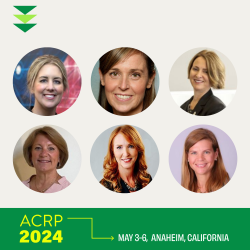In the best of all possible worlds, clinical trial teams at study sites get along professionally and productively with each and every clinical research associate (CRA) who visits in person or remotely to monitor the progress and compliance of studies on behalf of their sponsors. In the real world, however, the relationship may be more of a “can’t live with them, can’t live without them” scenario as far as the site team members’ feelings about certain CRAs are concerned.
Obviously tense or seemingly terrific, there is a path forward for identifying where and how interactions between site and sponsor representatives should be improved during monitoring visits by focusing on the CRA side of the equation, says Elizabeth Weeks-Rowe, LVN, CCRA, who has conducted CRA evaluations with this goal in mind on and off for more than 20 years, most recently through Elizabeth Weeks-Rowe Consulting, LLC. CRA evaluations are equally vital for determining if veterans in the field are still proficient and if incoming rookies are ready to be independent, she explains.
“I want to banish the myth that conducting CRA evaluations is strictly a ‘pass or fail’ process,” notes Weeks-Rowe, who will present on the topic at the upcoming ACRP 2024 conference in Anaheim, Calif. “Dedicated CRA evaluators not only sign off on new CRAs to begin their independent monitoring visit duties, but confirm continuing proficiency for experienced CRAs at specific time intervals after observing them at work interacting with study site personnel. A holistic evaluation covers the ‘entire’ performance—it’s an equitable assessment of all CRA activities, and a situation in which trust between the CRA and CRA evaluator is crucial.”
CRA evaluations are an industry standard utilized by pharmaceutical companies and their allied contract research organizations to keep tabs on the monitoring visit activities of CRAs at investigational sites. Weeks-Rowe describes them as “the primary means to assess CRA competency due to the autonomous nature of monitoring visits.”
A Holistic CRA Evaluation Process for Improving Monitoring Visits
Join Elizabeth at ACRP 2024 [May 3 – 6; Anaheim, CA], as she discusses the importance of transparency, positivity, and professionalism framing all aspects of the process for evaluating the performance of clinical research associates (CRAs) during study site monitoring visits. View complete schedule.

CRA evaluators must be professional and experienced as they identify training gaps, recognize areas of strength, and consider all aspects of a CRA’s activities to make a thorough determination of what is going well and what needs attention, Weeks-Rowe says. “Some CRA evaluators have the attitude of ‘fail one area, fail all areas,’ but a proficient evaluator looks at all aspects of CRA performance during monitoring visit assessments and can determine proficiency overall, even if there are some areas for improvement, based on CRA experience, time in role, and other factors,” she adds.
“At the ACRP 2024 gathering, I want to concentrate on the assessment process from preparation and communication through conduct and reporting, with a thorough overview of how one truly determines the capabilities of those who are tasked with the very important and sensitive work of being CRAs,” Weeks-Rowe concludes.
Edited by Gary Cramer



